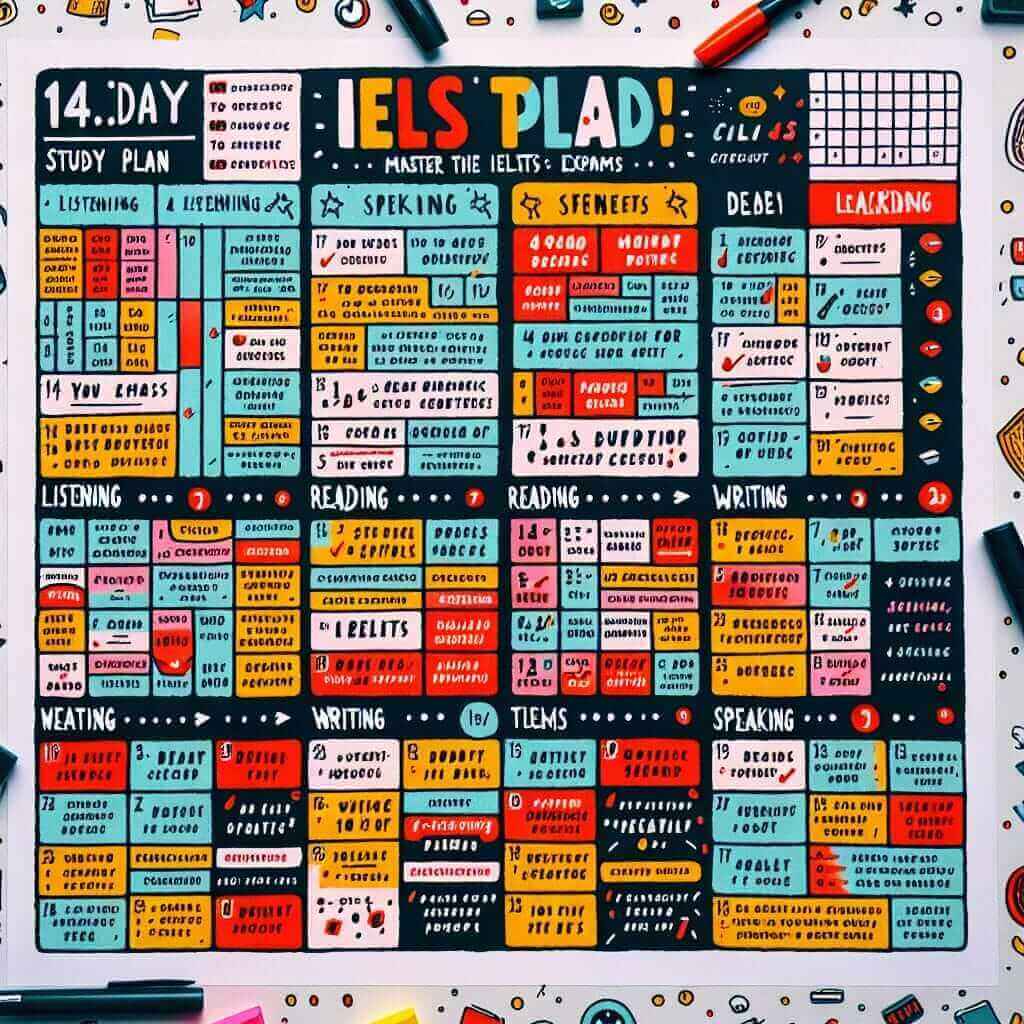Preparing for the IELTS exam in just 14 days can seem like a daunting task, but with focused planning and strategic study, it’s entirely possible to optimize your performance. The International English Language Testing System (IELTS) is a standardized test that assesses your proficiency in English across four key areas: Listening, Reading, Writing, and Speaking. Whether you’re aiming to study, work, or migrate, a good IELTS score is crucial. This guide will walk you through a detailed 14-day preparation plan, helping you to maximize your study time effectively.
Understanding the Keyword: How to Prepare for IELTS in 14 Days
Preparing for an exam like the IELTS in such a short time frame requires a strategic approach. Here’s a breakdown of what you need to focus on:
- Timed Practice: Daily practice sessions with time limits simulating the actual test conditions.
- Targeted Learning: Focusing on your weakest areas first to make the most significant improvements.
- Official Materials: Utilizing IELTS official resources and practice tests.
- Balanced Preparation: Spanning all four skills (Listening, Reading, Writing, Speaking).

Example of a 14-Day Study Plan
Day 1-2: Assess Your Level
- Take a full-length practice test to identify your strengths and weaknesses.
- Analyze your results to focus your efforts on the areas needing the most improvement.
Day 3-5: Focus on Listening and Reading
- Listening: Listen to IELTS sample tests, BBC news, TED Talks, or English podcasts. Practice note-taking skills and familiarize yourself with different accents.
- Example: Listen to a TED Talk and summarize the main points.
- Reading: Read IELTS sample passages, articles from The Guardian or BBC. Practice skimming and scanning techniques to find key information quickly.
- Example: Read an article from The Guardian and practice summarizing paragraphs in your own words.
Day 6-8: Work on Writing
- Attempt both Task 1 (describing visual information) and Task 2 (essay writing).
- Focus on structuring your essays, using varied sentence structures, and incorporating appropriate vocabulary.
- Example: Write a Task 2 essay on “The impact of globalization on local cultures.” Use complex sentence structures and a mix of formal vocabulary.
Day 9-11: Sharpen Speaking Skills
- Practice speaking on a variety of topics. Record yourself and critically evaluate your fluency, pronunciation, and coherence.
- Use sample speaking questions and simulate an exam scenario.
- Example: Prepare a 2-minute speech about your favorite book and record it. Analyze your pronunciation and intonation.
Day 12-13: Integrated Skills Practice
- Combine skills in your practice sessions. For instance, read an article and then summarize it verbally to practice both reading and speaking simultaneously.
- Example: Read a passage on environmental issues and then discuss your views on the topic.
Day 14: Full Practice Test
- Take a full-length practice test to simulate exam conditions. This final test should help build your stamina and give you a clear indication of your readiness.
- Analyze your performance and make last-minute adjustments based on results.
Common Mistakes to Avoid
- Not Timing Yourself: Always practice within the time limits of each section to manage your time effectively during the actual exam.
- Ignoring Weak Areas: Focus on improving your weakest skills rather than just practicing what you are already good at.
- Lack of Practice: Merely understanding the concepts is not enough; consistent practice is crucial.
Effective Practice Tips
- Daily Schedule: Allocate specific times each day for different skills, ensuring a balanced approach.
- Staying Updated: Use current resources for practice to familiarize yourself with the latest exam formats and question types.
- Peer Learning: Collaborate with other IELTS learners to practice speaking and get feedback on writing tasks.
Conclusion
Preparing for the IELTS exam in 14 days is challenging but achievable with a well-structured plan and dedicated effort. Focus on your weaknesses, practice under timed conditions, and use reliable resources for the best preparation. Remember, consistent practice and a balanced approach will be key to achieving your desired score. Feel free to leave comments, share your experiences, and explore other resources on IELTS.NET to further aid your preparation journey. Good luck!